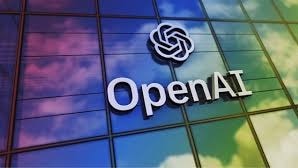Source : INDIA TODAY NEWS
OpenAI’s highly anticipated GPT 5 model, which was expected to push the boundaries of artificial intelligence, is reportedly behind schedule and incurring significant development costs. According to a report by The Wall Street Journal, the AI powerhouse is grappling with the dual challenges of advancing its technology and managing its financial demands. The delay in GPT 5’s release has sparked speculation across the tech industry, given OpenAI’s track record of timely launches for its language models. The report suggests that the complexity of training and scaling large language models (LLMs) like GPT 5 is one of the primary reasons for the setback. These models require enormous computational resources, specialised hardware, and vast datasets, all contributing to spiralling expenses. To recap, the GPT 4 model was released in March 2023 and since then, OpenAI has been working on its next flagship level model, GPT 5.
advertisement
The Wall Street Journal highlights that OpenAI’s goals for GPT 5 include improving reasoning capabilities, enhancing factual accuracy, and addressing biases. However, meeting these objectives has proven to be more challenging than initially anticipated. And it also includes details about the 18-month development of GPT-5, code-named Orion.
GPT 4: Reasons why it is running late
A key challenge for Orion lies in data scarcity. OpenAI researchers have determined that the public internet no longer offers the high-quality, diverse datasets required for the model’s advancement. To tackle this issue, the company has begun generating synthetic data, enlisting software engineers, mathematicians, and theoretical physicists to produce original content.
Another reason is on the financial side as OpenAI’s expenditures have been a growing concern. Training GPT 4 reportedly costs tens of millions of dollars, and industry analysts estimate that GPT 5’s development could surpass these figures significantly, the report stated. The company has been exploring ways to offset these costs, including partnerships, subscription models for its products, and new investment rounds.
Microsoft, a key investor, has played a vital role in supporting OpenAI’s infrastructure through Azure cloud services, but even with such backing, the financial strain remains substantial.
Despite these challenges, OpenAI is still pushing forward with its plans to redefine AI capabilities. Experts believe that the delay could ultimately benefit the company by allowing more rigorous testing and refinement of the model, ensuring it meets user expectations and industry standards.
The delay in GPT 5’s release also reflects broader trends in the AI industry, where companies are facing mounting pressure to deliver advancements while addressing ethical, technical, and financial challenges. As the tech world eagerly awaits GPT 5, OpenAI’s ability to overcome these hurdles will likely determine its future leadership in the rapidly evolving AI landscape.
While a few previous reports have pointed out that the GPT 5 will be out by December 2024, the launch date of the flagship model is still under wrap.
SOURCE :- TIMES OF INDIA




